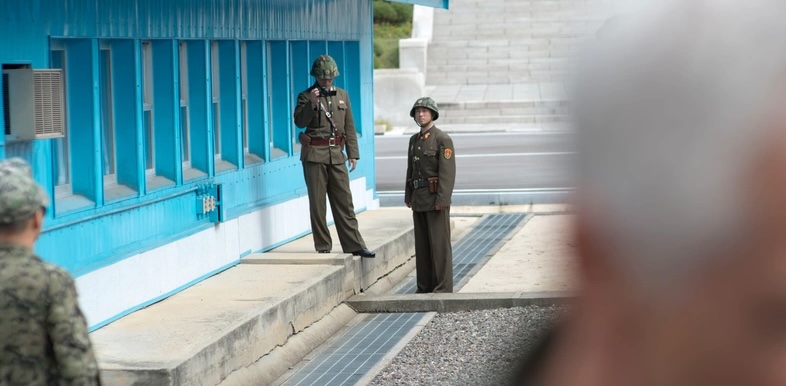Already a subscriber? Make sure to log into your account before viewing this content. You can access your account by hitting the “login” button on the top right corner. Still unable to see the content after signing in? Make sure your card on file is up-to-date.
South Korea has officially started removing border loudspeakers used for anti-North Korea propaganda.
Some shit you should know before you read: Shortly after taking office this year, South Korean President Lee Jae Myung signaled a shift in approach toward North Korea, aiming to ease long-standing hostilities and reopen channels for dialogue. As an early gesture, he halted anti-Pyongyang loudspeaker broadcasts along the border and moved to enforce a ban on activists sending propaganda leaflets into the North (actions that had previously raised tensions). Additionally, President Lee has sought to scale down the scope and visibility of annual joint military drills with the United States, exercises that North Korea routinely condemns as rehearsals for invasion. So far, North Korea has said it has no interest in fixing relations with the South, with a top official last week shooting down the idea of new talks with South Korea.

What’s going on now: In a notable development, South Korea confirmed that its military has begun dismantling the loudspeakers installed along the Demilitarized Zone (DMZ) that were used to broadcast propaganda messages into North Korea. The operation began on a Monday and officials did not provide specific figures on the number of units being taken down, but stated the process would be completed by the end of the week.
These loudspeakers, which had been silent for years, were reactivated in 2024 in response to North Korea’s sending trash-filled balloons into South Korean territory (after South Korean activists sent leaflets into North Korea). The broadcasts served as a psychological operation, featuring a mix of international news, commentary on the North Korean regime, and South Korean cultural content, including K-pop music. The loudspeakers could reach up to 10 miles into North Korean territory. In response, North Korea would broadcast their own sounds, which included eerie sounds that some described as demonic or creepy.
The Defense Ministry described the removal as a “practical measure” that aligns with the broader goals of easing hostilities while maintaining readiness. Spokesperson Lee Kyung-ho noted that there were no prior military discussions with Pyongyang regarding the action, reinforcing that the move was a unilateral decision reflecting Seoul’s new policy direction.







